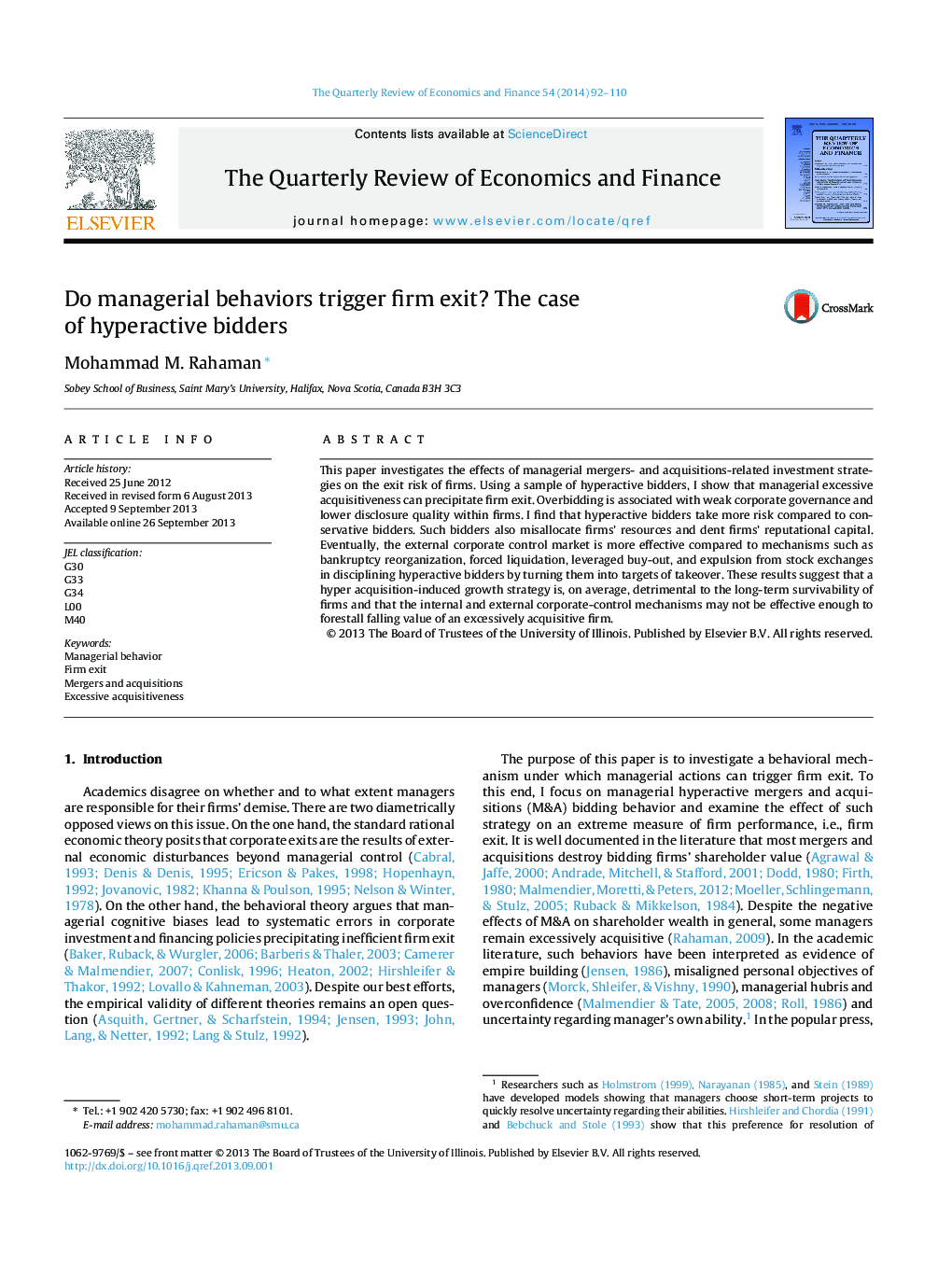| کد مقاله | کد نشریه | سال انتشار | مقاله انگلیسی | نسخه تمام متن |
|---|---|---|---|---|
| 983267 | 1480449 | 2014 | 19 صفحه PDF | دانلود رایگان |
• Managerial hyper-acquisitiveness can trigger firm exit.
• Overbidding is associated with weaker governance and low-quality disclosure.
• Overbidding increases business risk, distorts investment, and dents reputation.
• Market reaction at M&A announcement does not fully reflect the cost associated with such behaviors.
• Hyperactive bidders eventually become good targets of takeover.
This paper investigates the effects of managerial mergers- and acquisitions-related investment strategies on the exit risk of firms. Using a sample of hyperactive bidders, I show that managerial excessive acquisitiveness can precipitate firm exit. Overbidding is associated with weak corporate governance and lower disclosure quality within firms. I find that hyperactive bidders take more risk compared to conservative bidders. Such bidders also misallocate firms’ resources and dent firms’ reputational capital. Eventually, the external corporate control market is more effective compared to mechanisms such as bankruptcy reorganization, forced liquidation, leveraged buy-out, and expulsion from stock exchanges in disciplining hyperactive bidders by turning them into targets of takeover. These results suggest that a hyper acquisition-induced growth strategy is, on average, detrimental to the long-term survivability of firms and that the internal and external corporate-control mechanisms may not be effective enough to forestall falling value of an excessively acquisitive firm.
Journal: The Quarterly Review of Economics and Finance - Volume 54, Issue 1, February 2014, Pages 92–110
